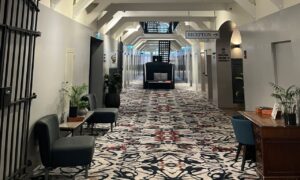An IPS-partnered initiative is advancing Europe’s efforts to integrate youngsters in refugee-like situations through in-person training events that promote a communitarian and holistic approach - empowering refugees as active participants in their integration, while engaging civil society in fostering supportive, welcoming communities.
Individuals in refugee-like situations across Europe continue to face significant barriers to integration, despite the ongoing efforts of governments, non-governmental organisations (NGOs), and civil society to improve their circumstances. The responsibility for adaptation is often placed solely on them, neglecting the fact that refugee integration must be a bidirectional process, shared between those seeking to integrate and the communities that receive them.
Addressing this very need, the IPS-partnered initiative REFUGIN aims to promote a dual, inclusive approach by empowering refugees as active participants in their integration journey while mobilising civil society to create supportive, welcoming environments through shared responsibility.
To achieve this, the initiative has organised a series of knowledge consolidation events aligned with the project’s training approach, focusing on three core modules: understanding the complex path of youngsters in refugee-like situations, exploring techniques and methods for effective integration, and strategies for working towards long-term integration.

The events complemented the project’s broader training approach by offering practical insights and hands-on experience. Benefiting from valuable exchanges among practitioners and experts from all partner countries, these knowledge consolidation events contributed to creating a collaborative environment where knowledge, strategies, and best practices were shared.
Laying the foundations for integration
The 1st knowledge consolidation event, held in Bucharest, Romania, laid the groundwork for a deeper understanding of the challenges in refugee integration. Discussions focused on several key areas, such as legal considerations and specificities. Disparities based on the country of origin were examined, alongside the lack of cohesion within the EU’s support systems. Participants were encouraged to critically reflect on Europe’s varied responses to refugee crises, with particular attention given to the differences in how the Ukrainian crisis was addressed.
A second critical focus was national realities, where greater emphasis was placed on the situation in Romania. Presentations showcased how national policies are implemented at the local level, underscoring the importance of building trust between individuals in refugee-like situations, case managers, and the host community. The situations in Poland and Portugal were also discussed to offer a comparative perspective.
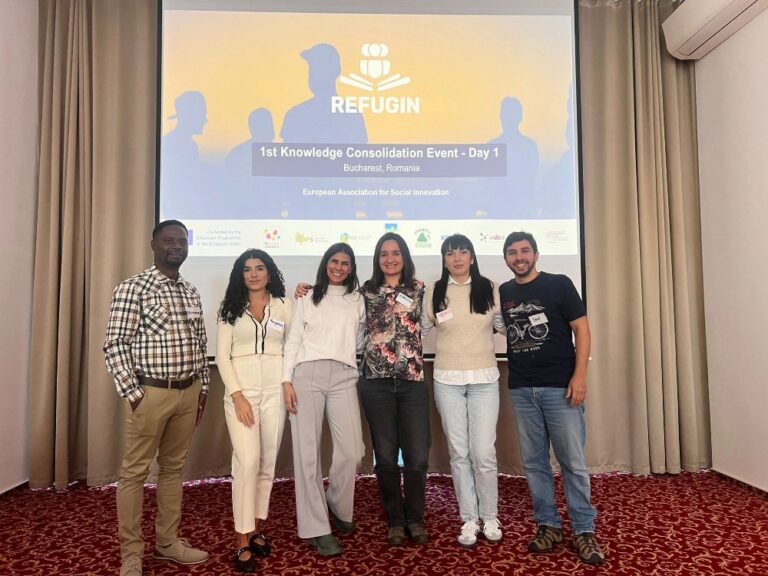
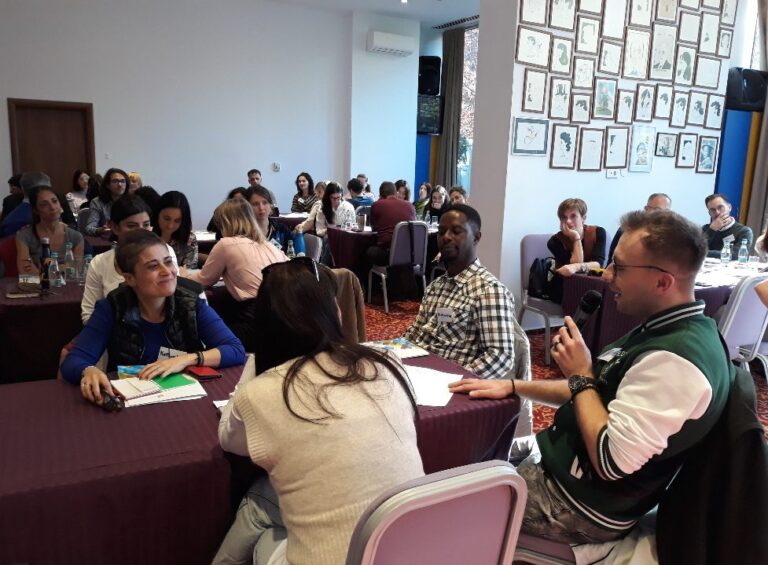
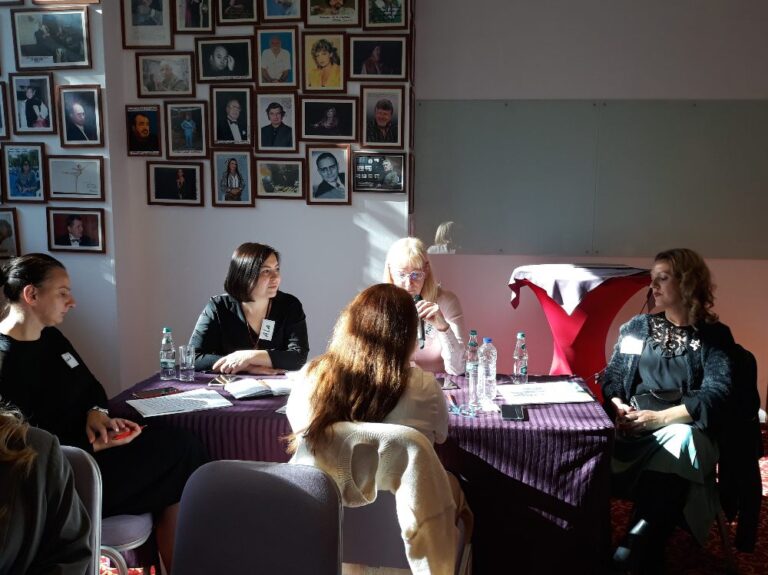
Another significant topic was how integration needs change over time. At first, the focus is on short-term essentials, such as housing, clothing, and food. However, as refugees settle, their needs shift toward long-term goals such as building a sense of belonging and finding ways to contribute to their new communities. This transition was highlighted as crucial for successful, lasting integration.
Finally, a living library exercise provided participants with the opportunity to share personal stories and engage in meaningful exchanges, fostering mutual understanding and empathy.
Practical methods to promote sustained integration
Taking place in Chisinau, Moldova, over three impactful days, the 2nd knowledge consolidation event gathered participants from civil society organisations and government representatives to share valuable insights and strategies aimed at improving refugee integration.
During the event, a focus was placed on positive conflict management, with an emphasis on trauma-informed approaches and care, to be integrated across the support system. Participants explored de-escalation techniques and restorative-led practices as essential tools for fostering a more harmonious and supportive environment for refugees.
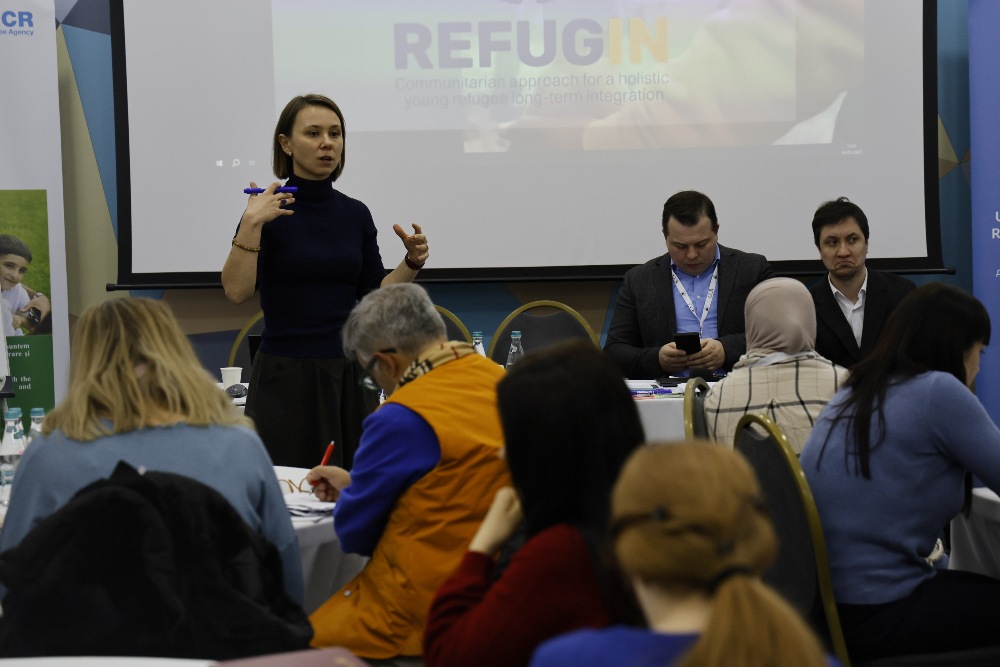
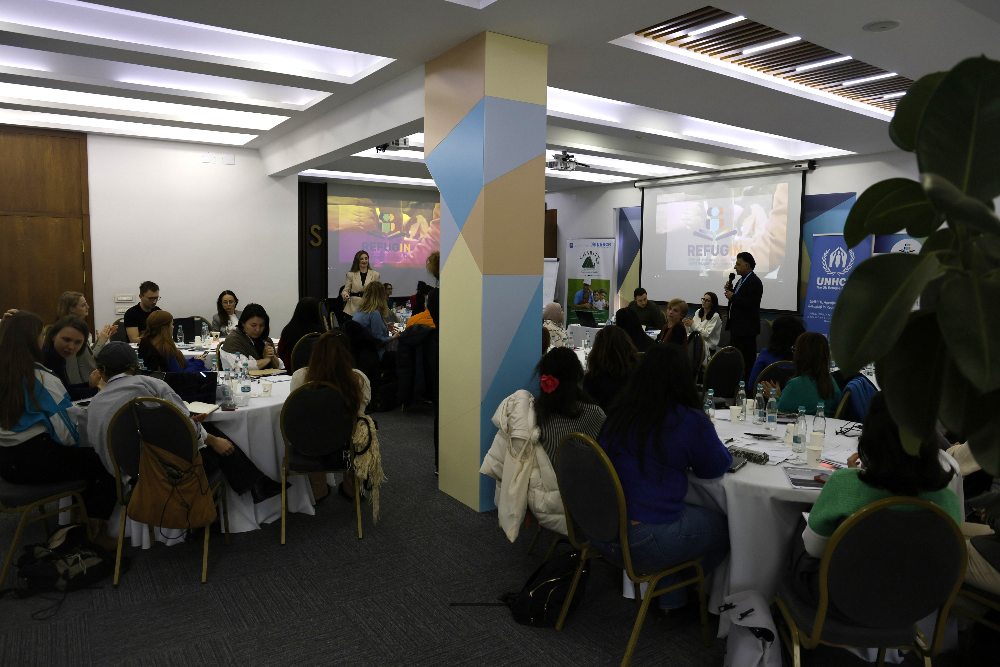
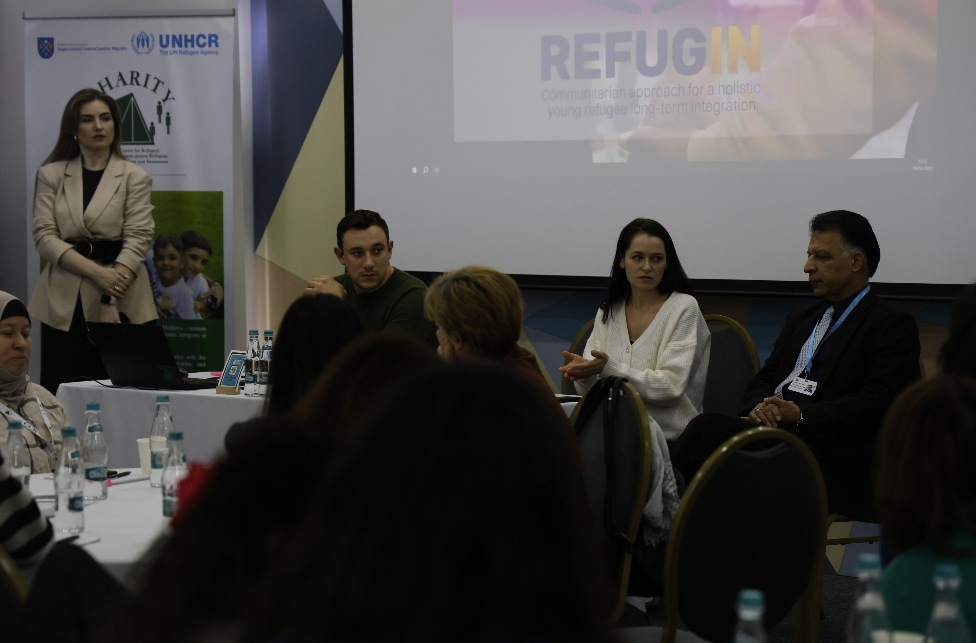
A key takeaway was understanding that integration is not a short-term process. Given the evolving dynamics of forced migration, refugees are increasingly staying longer in host communities, making it clear that full integration takes around 10 years to become fully consolidated. This long-term perspective is crucial in guiding future integration efforts.
Participants also benefited from practical experiences, including a visit to the CCR offices and the Chisinau Temporary Accommodation Centre, managed by the General Inspectorate for Migration.
Interculturality and cooperation
The 3rd knowledge consolidation event, held in Budapest, Hungary, focused on the role of interculturality in refugee integration, particularly for youth, in an increasingly polarised social climate. Participants emphasised the importance of creating safe spaces for dialogue, challenging stereotypes, and fostering mutual respect and empathy as essential components of inclusive integration.
Hosting the event in Hungary – where migration discourse remains challenging – further underscored the critical role of civil society in promoting positive narratives and building local support networks.
As part of the programme, participants visited the Second Chance Sports Association, a local NGO that uses sport and the “fair play” method to connect vulnerable youth with social institutions. This practical experience demonstrated how non-formal education approaches can effectively contribute to integration.
Throughout the event, participants reaffirmed that intercultural exchange must be nurtured through meaningful encounters, that mutual understanding is built by moving beyond stereotypes, and that integration is fundamentally a process of participation and empowerment, requiring the active involvement of all stakeholders, including refugees themselves.
The event also featured a screening of a documentary by Tyagi Pallava, which highlighted the experiences of non-Ukrainian refugees during the Ukrainian crisis, bringing visibility to less visible displacement stories.
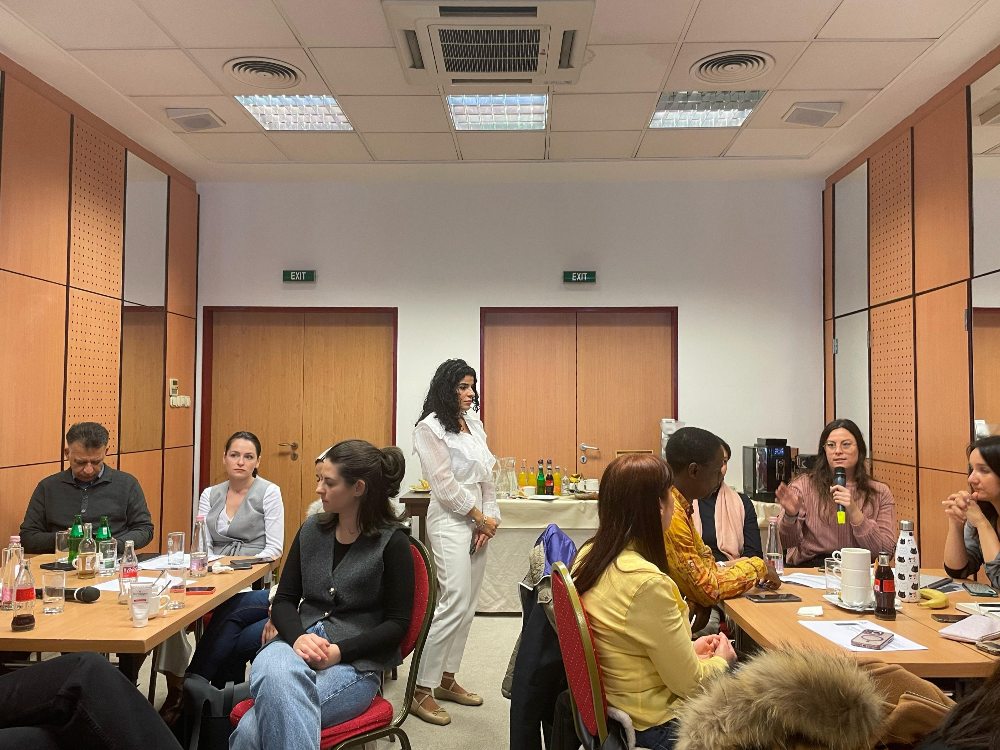
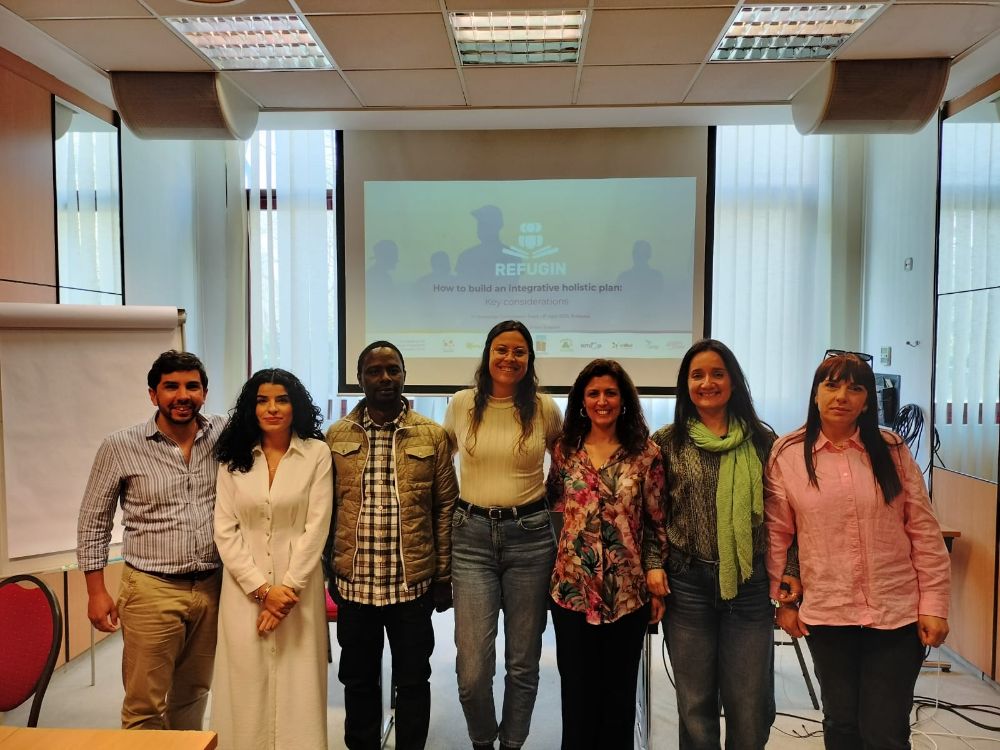
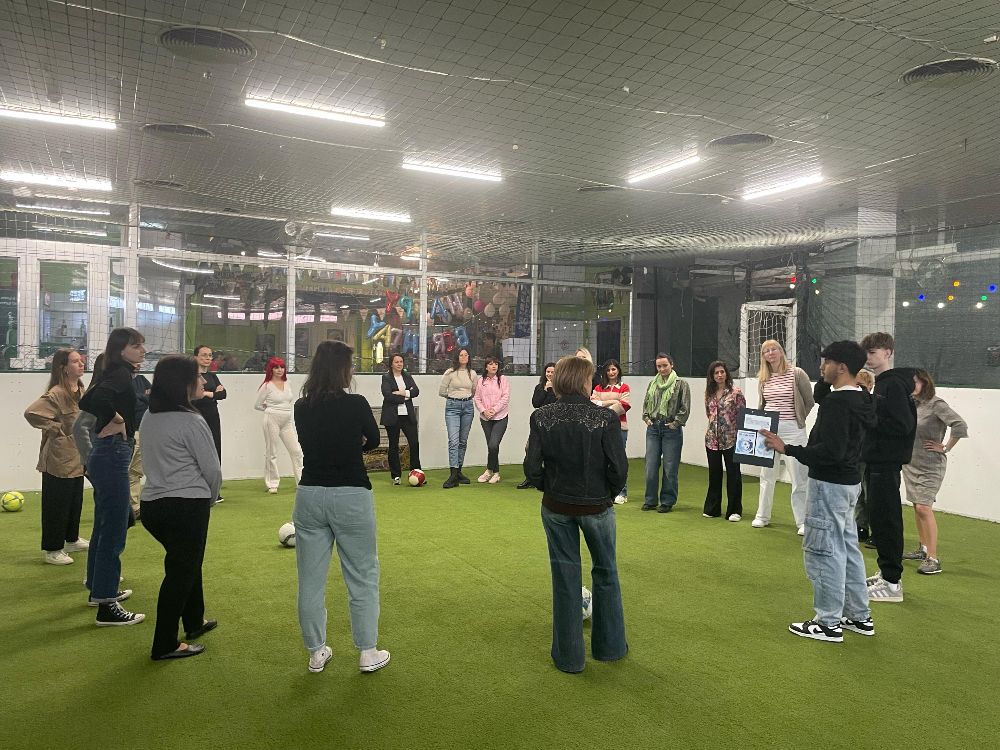
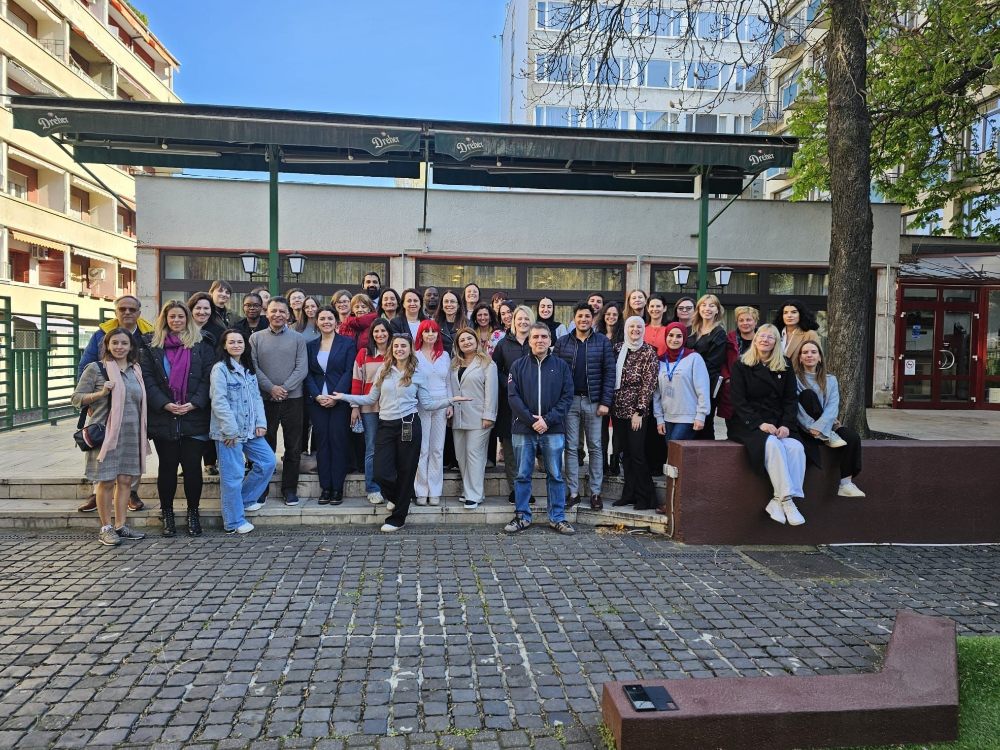
These training events played an important role in equipping civil society actors with the tools, knowledge, and perspectives needed to support holistic, long-term integration. By fostering collaboration across sectors and borders, they contribute to building more inclusive, resilient communities that recognise integration as a shared responsibility.
Know more about this project

REFUGIN
Communitarian approach for a holistic young refugee long-term integration
The REFUGIN project consortium is led by the Les Militants des Savoirs Association (France), and partnered by IPS_Innovative Prison Systems (Portugal), KMOP Social Action and Innovation Centre (Greece), UNITED For Intercultural Action (Hungary), UREP – União de Refugiados em Portugal (Refugees Union in Portugal), the School with Class Foundation (Poland), the Helsinki Committee for Human Rights in Serbia , EaSI – European Association for Social Innovation (Romania), and the Charity Centre for Refugees in Moldova.
For more information on the REFUGIN project, please visit its page.
Related projects
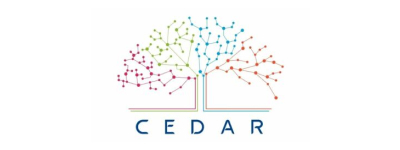
CEDAR
Continuing Education Against Radicalisation

COOPERHATE
Delivering a comprehensive approach to preventing, reporting, investigating and prosecuting hate crime and hate speech-related incidents in Portugal

DIGIDEM
Fostering Digital Democracy and Citizenship in Higher Education

EUTEx
Developing a European framework for disengagement and reintegration of extremist offenders and radicalised individuals in prison

FUTURE-ART
Sentinels of the Future: Together to Eradicate Human Trafficking
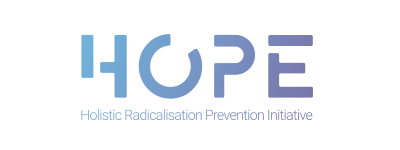
HOPE
Holistic Radicalisation Prevention Initiative (Balkan countries)

IN2PREV
Law enforcement and community cooperation and training approach to prevent radicalisation by ensuring refugees’ successful inclusion
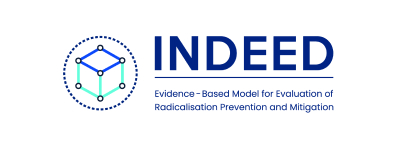
INDEED
Strengthening a comprehensive approach to preventing and counteracting radicalisation based on a universal evidence-based model for evaluation of radicalisation prevention and mitigation

INTEGRA
Integrated Community, Probation and Prison Services Radicalisation Prevention Approach

KOBAN
Identifying future capabilities for Community Policing
Related news

IPS has joined a new partnership focused on enhancing the prevention, reporting, and investigation of hate crimes and hate speech in Portugal
Read More »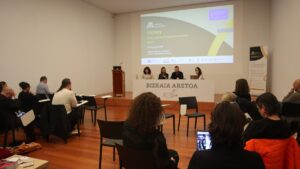
Presenting resources for victims and practitioners at European meeting on responses to hate-motivated harm
Read More »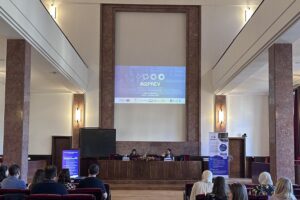
IN2PREV Final Conference highlights cross-sector collaboration for refugee inclusion and radicalisation prevention
Read More »
Standing united against hate: A national effort to prevent and tackle hate crime and hate speech in Portugal
Read More »

